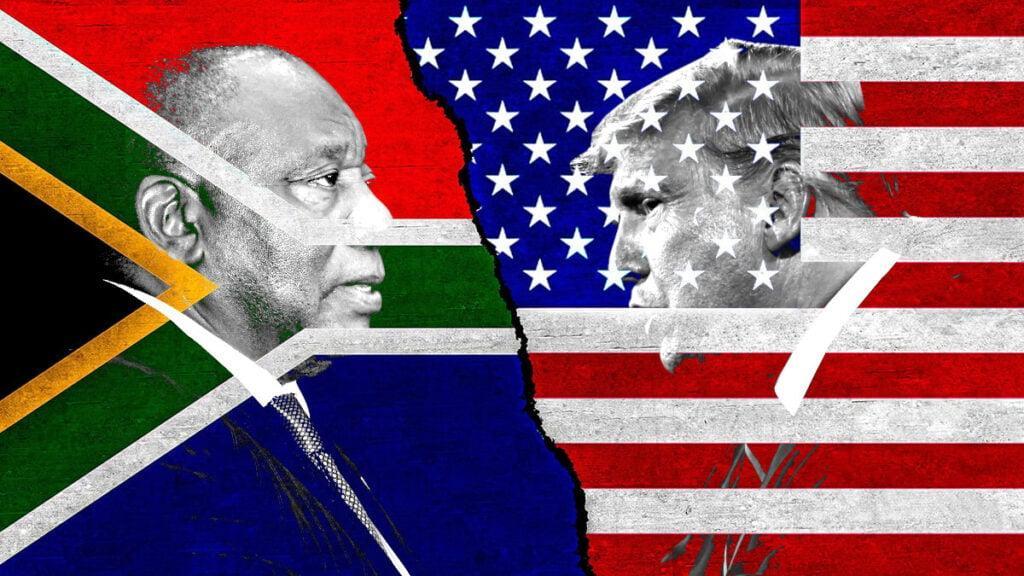Africa-Press – South-Africa. Despite the clear pressure on South African markets due to global geopolitical uncertainty and some stumbles back home, risks are still improved from last year. and government bond yields are still high.
This is according to Sanisha Packirisamy, Economist at Momentum Investments, who outlined the latest developments in the country and analysed the South African Reserve Bank’s latest monetary policy review.
Packirisamy noted that sentiment in South Africa has taken a hit in 2025, with the headline feature being the return of US President Donald Trump and the onslaught of his global trade war.
Trump launched a salvo on friends and foe alike in April, initiating a universal 10% tariff on imports on April 5 and following up with “reciprocal” tariffs on about 60 countries starting on April 9.
The 9 April tariffs were eventually paused for 90 days on the day they were to come into effect, but the 10% global tariff remained, and the US escalated trade tensions with China.
Packirisamy said the overall Trump policy package should be less negative for US growth over the longer term.
However, the immediate growth-negative implications of Trump’s immigration clampdown and higher tariffs will take precedence in the financial markets over the more growth-friendly policy measures of deregulation and potential tax relief.
Critically, Packirisamy said that Trump’s foreign policy actions so far have caused a global upset and have changed the diplomatic landscape dramatically.
This has had a generally negative impact on South Africa, which has not only suffered from the tariffs but also from being targeted directly by Trump politically.
The tariffs and global trade wars have hit South Africa’s GDP growth projections for the year, and the uncertainty in markets has hit the rand—exacerbating the country’s own missteps regarding the 2025 budget.
Despite this, Packirisamy said that South Africa’s risk premium is still much lower than it was the same time last year, before the 2024 national elections.
This is because of market optimism about the potential for enhanced policy reform under the Government of National Unity (GNU) that could result in a higher future growth outcome.
“Although some of the risk premium decline has reversed in recent months due to slow reform momentum and a rise in global geopolitical risk, the current risk premium is still well below pre-election levels and roughly in line with the 10-year average,” Packirisamy said.
However, the economist warned that valuations of South Africa’s equity and nominal bond markets don’t reflect significant positive sentiment about better growth potential for the country going forward.
South African equities continue to trade low against emerging market equities on a relative forward P/E basis and the country’s own long-term historical average.
That said, South Africa’s vanilla government bonds still provide some of the highest backwards-looking real yields in the world, only exceeded regularly by Brazil within the EM peer group.
“Relative to South Africa’s history since inflation targeting, the current more than 6% real forward-looking bond yield is comfortably more than one standard deviation above the historical average.” Packirisamy said.
Going for gold
Sanisha Packirisamy, Economist at Momentum Investments
The other positive for South Africa is the gold price.
Packirisamy noted that global central bank gold buying has been the overwhelming driver of a higher US dollar gold price since the Russia/Ukraine war in February 2022.
This initiated a period of elevated global geopolitical risk.
Central bank gold buying continued unabated in 2023 and 2024, remaining close to the all-time high reached in 2022.
“As gold does not rely on any issuer or government, it enables central banks to diversify their reserves away from assets like US Treasuries and the dollar,” she said.
“Research from SBG Securities shows that the rand gold price has been a consistent top asset class performer among South African asset classes over most periods in the past 50 years—albeit partly due to perennial rand weakness.”
Packirisamy said that, from a portfolio construction perspective, including a gold exchange-traded fund (ETF) as an asset class adds to portfolio diversification.
Its safe-haven characteristics during turbulent geopolitical periods also mitigate portfolio risk, she said.
Source: businesstech
For More News And Analysis About South-Africa Follow Africa-Press






